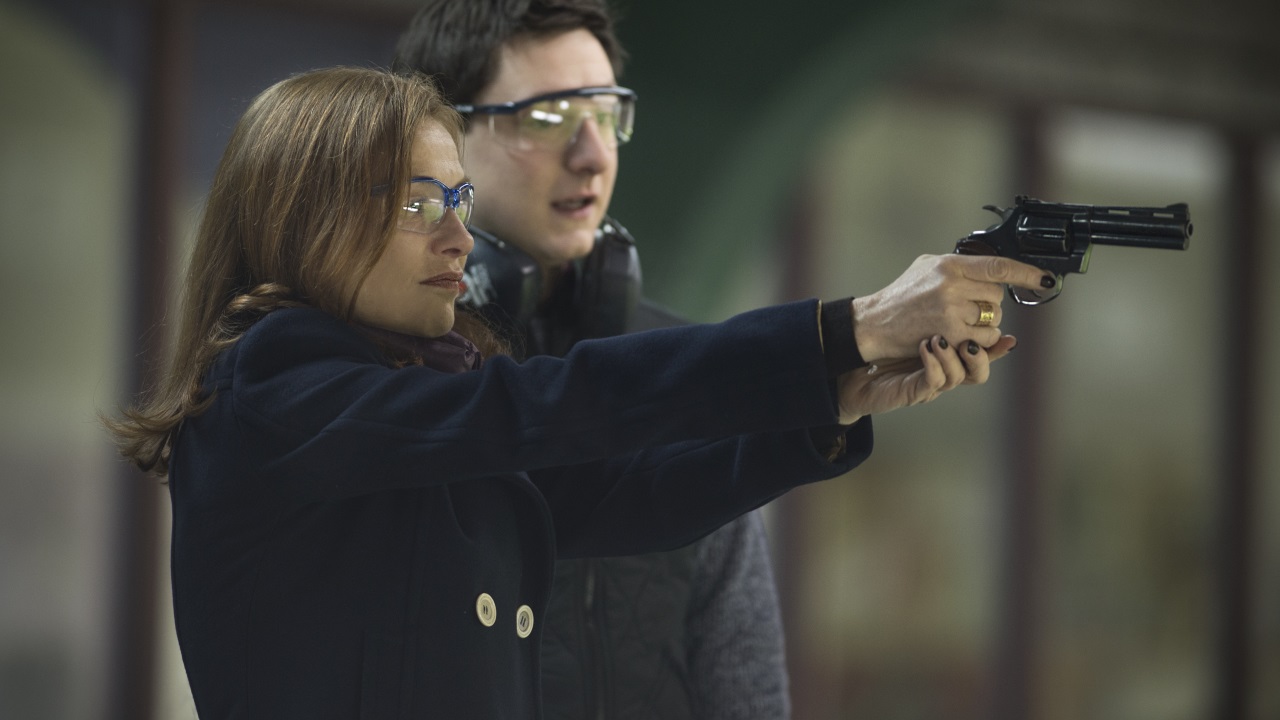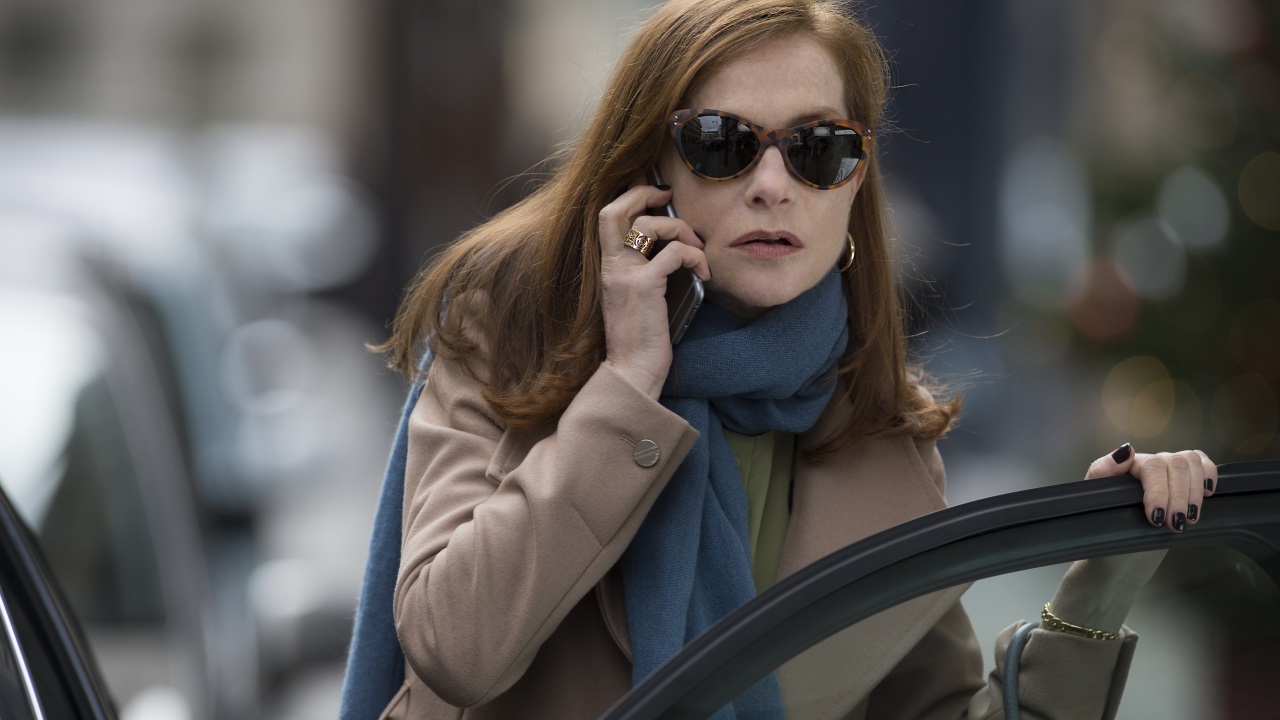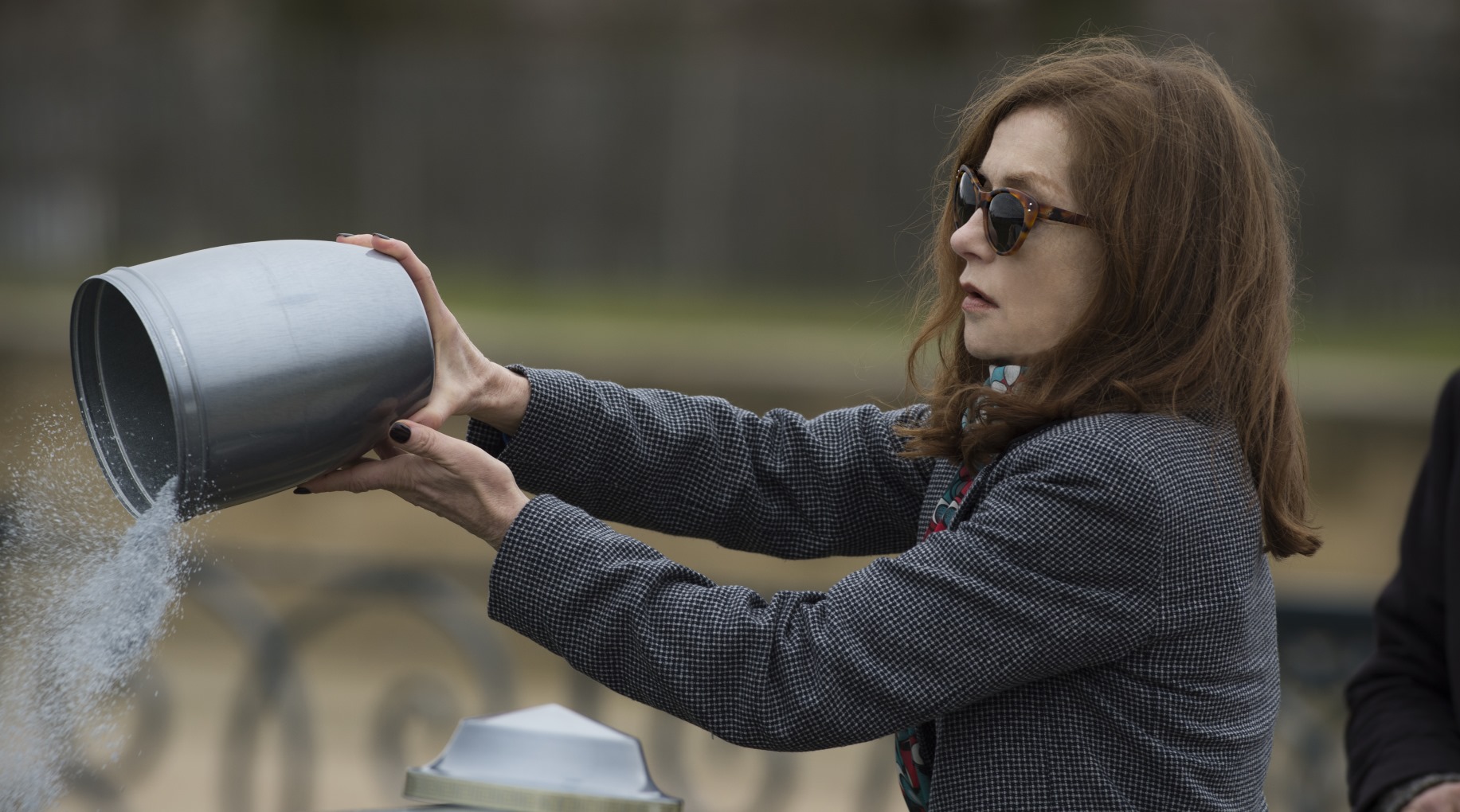GamesRadar+ Verdict
A complex film that sidesteps every cliché. Paul Verhoeven and Isabelle Huppert are at the top of their game.
Why you can trust GamesRadar+
Paul Verhoeven’s double-Golden Globe winner – his first feature in 10 years – starts with a rape. Just the sounds of an assault over a dark screen: cries, blows, the smashing of glass and crockery. The first image we see is the face of a handsome dark-grey cat, watching impassively. Then we see Michèle (Isabelle Huppert), prone and half-exposed on the floor of her sitting room, and a man all in black wearing a ski-mask.
Once her attacker is gone, however, she doesn’t weep or call the police. She sweeps up the debris, takes a bath – and calmly phones for a takeaway. Michèle, in short, may have been attacked, but she’s no victim. Anything but. She makes no attempt to curry sympathy – ours or anyone else’s.

The videogame company she runs with her close friend Anna (Anne Consigny) features princesses being penetrated by multi-tentacled trolls; when an employee accuses her of being too “literary” she retorts, “Maybe we’re two bitches who just got lucky.”
At a dinner party, her much-face-lifted mother announces her plan to marry her toyboy; Michèle waits for the polite congratulations to die down, then asks, “How do you manage to be so grotesque?” In between rapes – yes, there are several – she’s pursuing a loveless affair with Anna’s husband Robert. Finally coming clean to her friend, she matter-of-factly explains, “I needed to get laid.”

This is not, Verhoeven has insisted, “A rape comedy… There’s rape and there is comedy.” There is indeed, often of the blackest kind: witness the scenes between Michèle’s hopeless lunkhead of a son (Jonas Bloquet) and his awful girlfriend (Alice Isaaz).
But equally there are moments of sly social satire – as when, at the start of that sophisticated Parisian dinner party, a devout guest asks if she might say grace. The reactions of her fellow guests, a mix of embarrassment and scorn, are a delight to watch.
As you’ll have gathered, Elle is no conventional rape-revenge thriller. Even after Michèle discovers who her rapist is – and you won’t have much trouble guessing – the relationship continues, growing ever more tortuous.
We get a hint of an explanation for her emotional dysfunction when we learn about the horrific crimes committed by her father when she was a child. But here again the film doesn’t invite pity, and nor does Huppert.
It’s hard to think of another actress who could have played the role so fearlessly, and it seems Verhoeven initially planned to make this an American film, but could find no US actress who’d dare consider the role. It’s no loss. Not only is Elle among Verhoeven’s best films, it enshrines one of the finest performances Isabelle Huppert has yet given. And that really is saying something.




